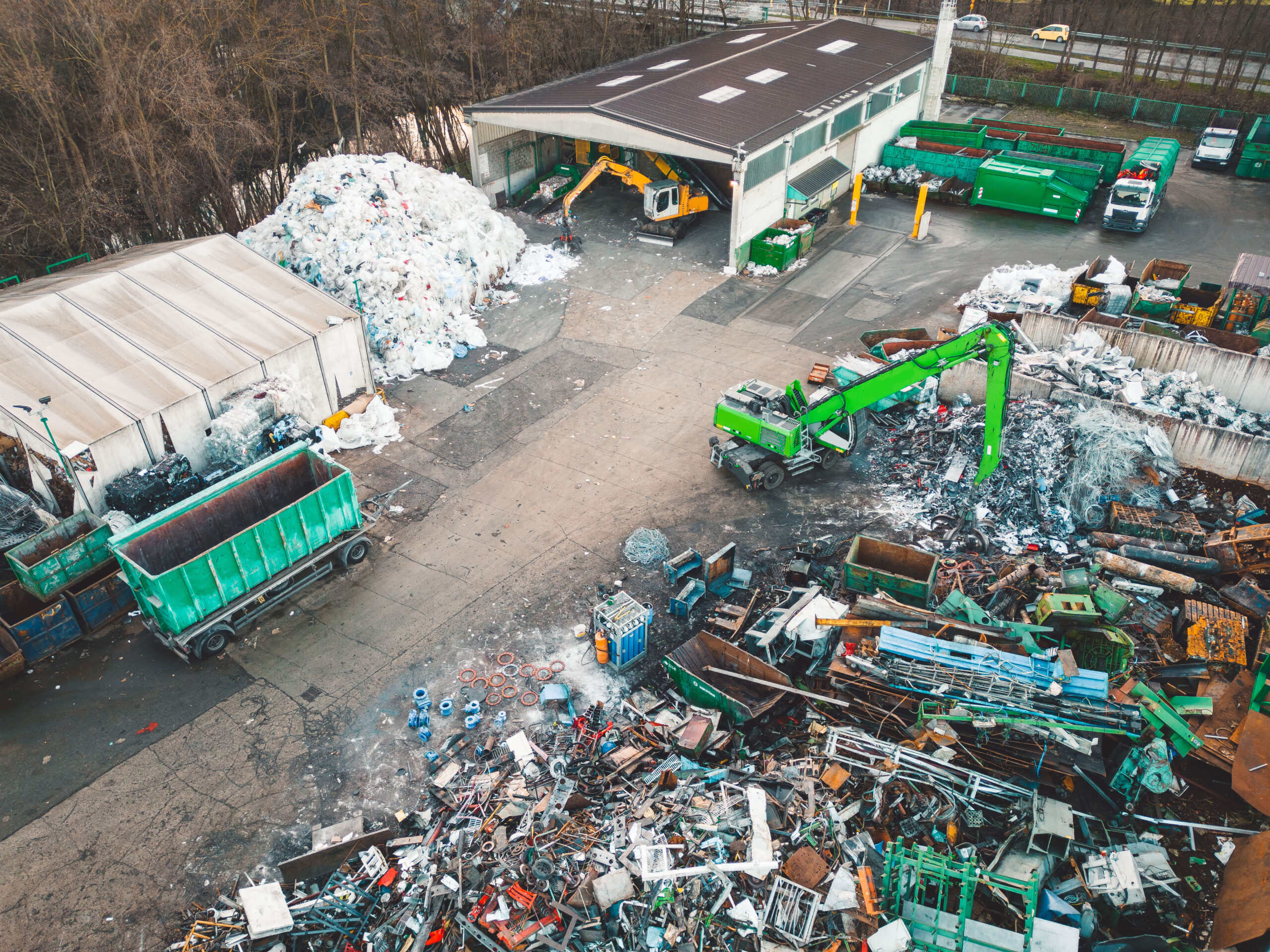Digitalization in waste management is the use of technologies like IoT, AI, blockchain, and data analytics to improve waste collection, recycling, and disposal. It helps reduce costs, boost efficiency, and lower environmental impact. While these tools can greatly enhance sustainability, their success depends on proper implementation and infrastructure. Done right, digitalization transforms waste systems into smarter, more sustainable operations.
The Role of Digitalization in Modern Waste Management
Waste management is a critical component of sustainable development, ensuring efficient resource use and environmental protection. Digitalization enhances traditional waste management practices by introducing smart technologies that optimize operations, reduce costs, and improve recycling rates.
Applications of Digitalization in Waste Management
1. Smart Waste Collection Systems
Digitalization improves the efficiency of waste collection through the use of IoT sensors, real-time data, and automated routing.
IoT-Enabled Bins
- Smart bins are equipped with sensors that monitor fill levels and alert collection teams when bins are full.
- Reduces unnecessary trips to empty partially filled bins.
Route Optimization
- GPS and data analytics optimize collection routes to minimize fuel consumption and time.
- Example: Cities like Amsterdam and Singapore use smart waste collection systems to reduce operational costs.
2. Waste Tracking and Monitoring
Digitalization enables real-time tracking of waste from its source to final disposal or recycling.
Blockchain for Transparency
- Blockchain creates a secure ledger to track waste movement.
- Ensures compliance with regulations and prevents illegal dumping.
RFID Tags
- RFID (Radio-Frequency Identification) tags are used to monitor specific waste items, like hazardous materials.
3. Artificial Intelligence in Waste Sorting
AI-powered systems enhance waste sorting accuracy, improving recycling efficiency.
Computer Vision for Sorting
- AI uses image recognition to classify materials like plastics, metals, and glass.
Robotic Sorting
- Robots equipped with AI can sort and segregate waste at recycling facilities.
- Example: ZenRobotics uses AI-powered robots to sort construction and demolition waste.
4. Data Analytics for Predictive Waste Management
Big data analytics helps predict waste generation patterns, allowing better planning and resource allocation.
Applications:
- Identifying peak waste generation times.
- Planning for increased recycling during seasonal events like festivals.
5. Digital Recycling Platforms
Online platforms connect waste producers with recyclers and buyers of recycled materials.
Examples:
- Platforms like ScrapMonster and RecycleInMe facilitate trade in recyclable materials.
Benefits:
- Reduces waste going to landfills.
- Encourages a circular economy.
Benefits of Digitalization in Waste Management
| Benefit | Description |
| Efficiency | Reduces manual effort and optimizes waste collection routes. |
| Cost Savings | Minimizes operational costs through automation and analytics. |
| Environmental Protection | Enhances recycling rates, reducing landfill waste. |
| Transparency | Blockchain ensures compliance and prevents illegal dumping. |
| Customer Satisfaction | Smart systems improve waste management services. |
Real-World Examples of Digitalization in Waste Management
- Barcelona’s Smart Waste System
- The city uses IoT-enabled bins and smart routing systems to improve waste collection efficiency.
- South Korea’s RFID-Based Food Waste Management
- RFID tags track food waste, charging households based on the amount of waste generated.
- AI Sorting in Finland
- ZenRobotics’ AI-powered robots sort industrial waste, increasing recycling rates.
Challenges in Implementing Digitalization in Waste Management
| Challenge | Description |
| High Initial Costs | Digital technologies require significant investment. |
| Data Privacy Concerns | IoT and blockchain systems handle sensitive data that must be secured. |
| Technical Complexity | Requires skilled personnel for installation and maintenance. |
| Resistance to Change | Traditional waste management companies may be slow to adopt new tech. |
Key Technologies Driving Digitalization in Waste Management
1. Internet of Things (IoT)
IoT sensors monitor waste bins, optimize collection, and reduce operational costs.
2. Artificial Intelligence (AI)
AI powers robotic sorting systems and predictive analytics for waste management.
3. Blockchain
Ensures transparency and compliance in waste tracking systems.
4. Big Data Analytics
Analyzes waste generation trends for better planning and decision-making.
5. Cloud Computing
Enables centralized data storage and accessibility across stakeholders.
A Chart Highlighting Key Benefits of Digitalization
| Aspect | Traditional System | Digitalized System |
| Waste Collection | Manual routing | IoT-enabled, optimized routes |
| Recycling Efficiency | Low | AI-powered sorting for higher recovery |
| Transparency | Limited | Blockchain-based tracking |
| Environmental Impact | High pollution | Reduced landfill waste, better recycling |
The Future of Digitalization in Waste Management
As urbanization increases, the demand for efficient waste management will continue to grow. Digitalization offers scalable solutions to manage waste sustainably, aligning with global sustainability goals. The adoption of smart technologies will drive innovation, enabling a shift towards a circular economy where resources are reused rather than discarded.
Conclusion
What is digitalization in waste management? It is the integration of digital technologies to optimize waste collection, processing, recycling, and disposal. By leveraging IoT, AI, blockchain, and data analytics, digitalization is transforming the waste management industry, making it more efficient, transparent, and sustainable. As we move toward a greener future, adopting these technologies will be crucial for building resilient waste management systems worldwide.

Leave a Reply